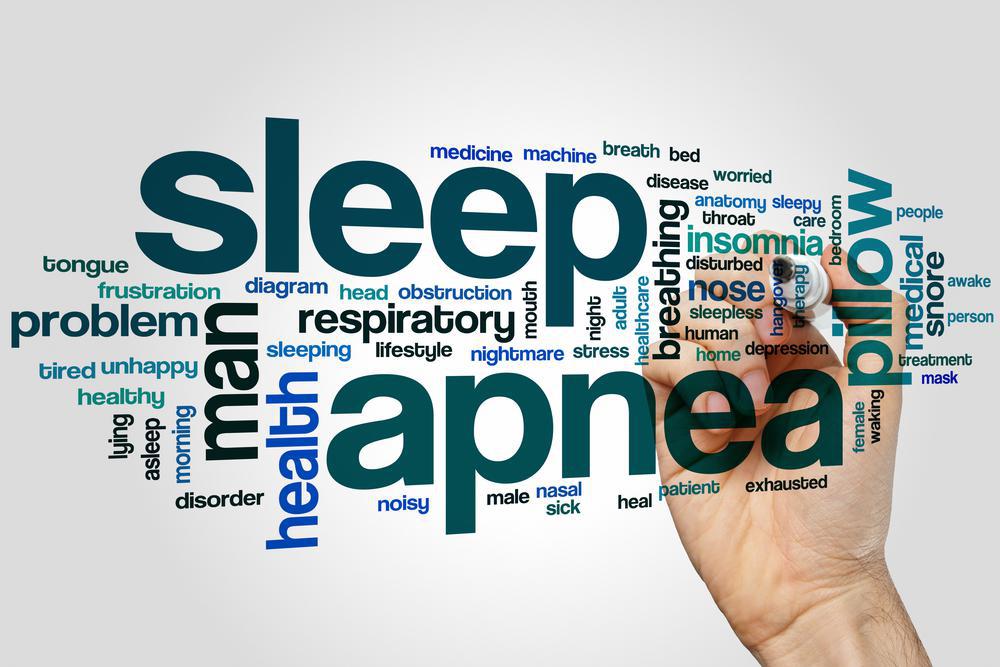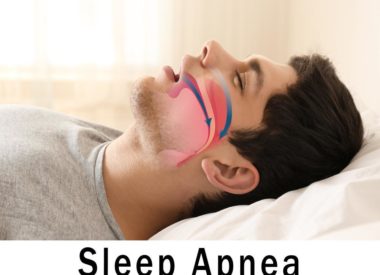What Is Sleep Apnea? (Signs, Symptoms, and Risks)
The term “sleep apnea” has become familiar to Americans, and for a good reason: it’s estimated by the National Sleep Foundation that 18 million people suffer from this sleep-related breathing disorder, many of them undiagnosed and, consequently, untreated.
OSA is more common in men and in post-menopausal women, but children can also suffer. Despite popular belief, OSA is not a condition limited only to those who are overweight or obese: thin, healthy, young people who have distinctive structures in their airways may also develop OSA.
The list of potential problems that could plague those with untreated sleep apnea is long and serious: diabetes, cardiovascular disease, depression, stroke, motor vehicle accidents, obesity, even cancer, can be outcomes.
Fortunately, sleep apnea is treatable, so many of these concerns can be prevented by simply treating the condition. But what exactly is sleep apnea? And how does it connect to these other health issues?
What is sleep apnea?
Sleep apnea refers toa category of several sleep breathing disorders, of which obstructive sleep apnea (OSA) is, far and away, the most common.
The word “apnea” means “without breath.” It refers to any situation when the body stops breathing and, in doing so, the bloodstream becomes deprived of oxygen.
“Sleep apnea,” then, refers to incidences in which the body stops breathing as you sleep.
More specifically, “obstructive sleep apnea” describes the chief reason why the body stops breathing: there is an obstacle preventing breathing.
What causes sleep apnea?
The obstacle in an obstructive breathing event is not an external one, but internal. It consists of one or more parts of the upper airway. The upper airway includes not only the throat, but the mouth, the sinuses, and the nasal areas. Key parts of the upper airway that cause obstructions include the tongue, adenoids, uvula, or tonsils. Any of these might be swollen or oversized. The jaw, too, can slide backward during sleep, compressing the airway near the back of the oral space known as the soft palate.
Those with added weight in their necks, or who suffer from swelling anywhere in the body, may find that the weight of retained fluids or fatty tissues also compresses the airway, either partially or completely, during sleep.
Sometimes, however, thin people with very narrow airways also suffer from partial or complete obstruction of the airway. In these cases, as with all OSA sufferers, the tone of the muscles and tissues that compose this part of the body slackens during sleep. These “flabby” areas are what cause the vibrations that we know as snoring. As we age, however, we also lose our tone in the upper airway, which might explain why older people seem to snore more than younger people.
Signs of sleep apnea
Snoring is, in fact, a key sign that OSA might be present in some people. While snoring itself is not the same thing as OSA, it almost always accompanies OSA and should be investigated to make sure any hidden sleep breathing issues are identified and treated. Even untreated snoring can have unhealthy consequences if it is loud and frequent, night after night.
Other signs you might have OSA include:
- gasp, choke or coughing your sleep after long silent pauses of breaths
- Excessive daytime sleepiness
- waking with a sore throat
- dry mouth
- unexplained chest pain or tightness
- morning headaches
- If you awaken in a poor mood and feel like you are not sleeping well
- Frequent kicking following quiet periods might also indicate your body is forcing you awake to correct the effects of obstructed breathing.
You may even notice these things for yourself: that you are waking up a lot at night and may have even had the experience of”snorting” yourself awake. Or you may find you are getting up to use the bathroom frequently with no other explanation for these nocturnal awakenings.
When you do this, it could be because the brain is receiving signals from the body that the levels of oxygen in your bloodstream are too low for healthy function. Your brain “wakes you up” so you can voluntarily breathe to clear any obstacles. Secondarily, while the brain alerts the body to episodes of apnea, it might also send messages to void the bladder now that you’re awake.
Symptoms of sleep apnea
Excessive daytime sleepiness is a hallmark of OSA. Frequent awakenings at night compromise your ability to achieve deep, restorative sleep, and, over time, this can lead to chronic problems with fatigue and daytime sleepiness. These are problems that should not go ignored: people with untreated OSA have more motor vehicle accidents (including fatal ones) and make more mistakes at work than people who treat their OSA. If you feel like you are not as focused during the day or struggle with decision-making, these could also be especially telling of hidden OSA, as it causes sleep deprivation that leads to cognitive challenges with normal everyday tasks like problem-solving.
Elevations in blood pressure, especially absent any other explanation, may also be symptomatic of OSA. The reason is simple: when the body has less oxygen, all of its systems including the heart and lungs require much more effort to work efficiently. Over time, this continual strain on the heart to keep up while using less oxygen will increase blood pressure.
Sleep apnea risks
A person with untreated OSA risks developing many chronic diseases or aggravating any current medical conditions they already have. Why is this?
When the body does not get enough oxygen, the depleted bloodstream and various body systems must compensate to keep everything from digestion to cell regeneration to the immune system balance functional. Long-term reductions in blood oxygen, as is seen with OSA patients who go for hours with less-than-healthy levels on a nightly basis lead to chronic, systemic(system-wide)inflammation.
If you allow the inflammation to become the “norm,” the body begins to break down under what is known as as oxidative stress. The heart, the brain, the lungs, the veins and arteries, the liver, the pancreas, the kidneys… all of these critical organs begin to experience distress which will ultimately lead to dysfunction and damage.
This is why OSA can lead to serious diseases like diabetes, cancer, atherosclerosis, atrial fibrillation, and more if it’s not treated.
What to do if you suspect sleep apnea
The beauty in understanding OSA is in the fact that it can be treated. A number of methods exist, including continuous positive airway pressure (CPAP), oral appliance therapy, positional therapy, outpatient procedures, neurostimulation implants, or nasal surgeries, and others.
First, however, you need to identify it by undergoing a sleep study. This may either occur in your home or in an accredited sleep center; the type of test you need will be determined by your sleep physician.
If you discover you have OSA, you and your sleep medicine professional will work together to determine which treatments you qualify for and which will work best for you.
If you have not yet been diagnosed with OSA, and you suspect you might have it, or you have a loved one who you believe may be suffering from OSA, don’t delay. Speak to your general physician about getting an appointment with a board-certified sleep physician. With so many risks, yet so many treatments available to you, there’s really no good reason not to.
Please reach out to us at Sound Sleep Health. We have 3 locations in the greater Seattle/Kirkland areas. So, call us and Improve Your Sleep Today!



